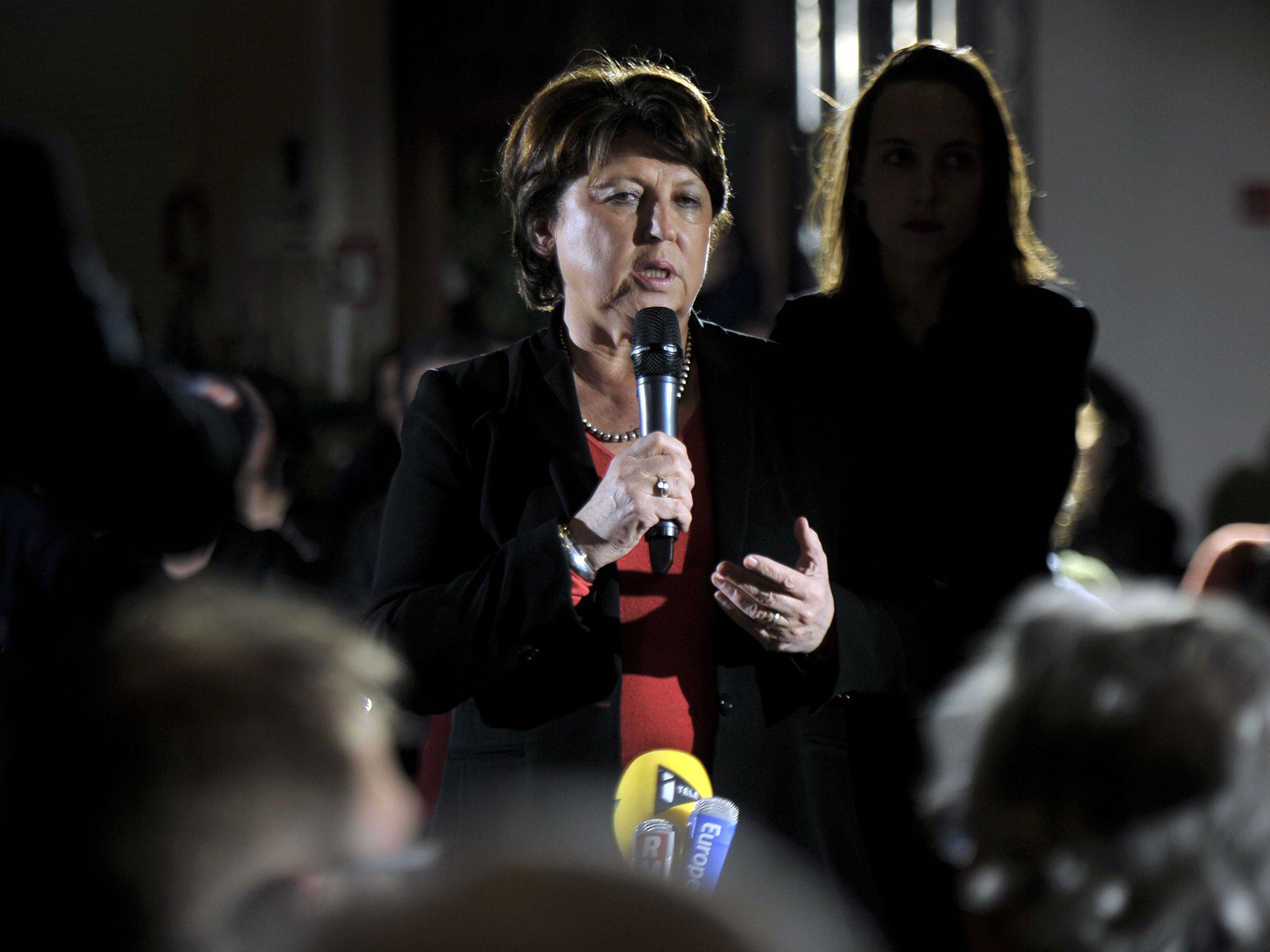François Hollande attempts to slay France's 'sacred cow' labour laws
‘Kamikaze’ move for doomed leader could draw large student protests

Your support helps us to tell the story
From reproductive rights to climate change to Big Tech, The Independent is on the ground when the story is developing. Whether it's investigating the financials of Elon Musk's pro-Trump PAC or producing our latest documentary, 'The A Word', which shines a light on the American women fighting for reproductive rights, we know how important it is to parse out the facts from the messaging.
At such a critical moment in US history, we need reporters on the ground. Your donation allows us to keep sending journalists to speak to both sides of the story.
The Independent is trusted by Americans across the entire political spectrum. And unlike many other quality news outlets, we choose not to lock Americans out of our reporting and analysis with paywalls. We believe quality journalism should be available to everyone, paid for by those who can afford it.
Your support makes all the difference.The most unpopular French government in recent times will this week attempt to slay the country’s most sacred economic and social cow – with potentially explosive results.
With only 14 months to go before a presidential election, President François Hollande and Prime Minister Manuel Valls face a rebellion within their own Socialist party and more worryingly, street protests on Wednesday by left-wing students.
Mr Valls has proposed what is, for France, a radical change in employment law, which would align the country with the more flexible hiring and firing rules applied in Germany, Britain and Scandinavian countries. He will hold a series of talks with France’s multiple trades’ union federations this morning in an attempt to head off protests, strikes and a threatened split within the Parti Socialiste.
An online petition against the proposed reform has already gathered more than 1,000,000 signatures, which is a French record.
In a lengthy interview with the Journal du Dimanche yesterday, Mr Valls promised “improvements” in the draft reform to answer the demands of the more reform-minded trade union leaders. He went on, however, to blame France’s high levels of unemployment – 3,500,000 people or 10 per cent out of work – on laws which create “barriers to the labour market”.
The proposed reform would make “permanent” employment contracts more flexible and make it easier for businesses to lay off workers when they run into economic difficulties. It would also allow employees to vote workplace-by-workplace for flexibility in the application of France’s 35-hour working week.
Far from making employment more “precarious” as critics complain, Mr Valls said the reforms would encourage smaller businesses to offer workers permanent jobs. At present, 90 per cent of jobs created in the private sector are on short-term contracts which offer no guarantees at all, he said.
“People say that the reform would make the lives of young people more precarious. In fact, young people have the most to gain,” Mr Valls said. “They are the principle victims of the present system, which forces employers to offer one short-term contract after another.”
The proposed reform has, however, compounded the fury of many within the Socialist Party and the further left at what they see as the treacherous, rightward course of the Hollande-Valls government. The protests have been led by the former Socialist leader, and “mother” of the 35-hour week, Martine Aubry, who has resigned from all her official positions within the party.
Ms Aubry complains that the rewriting of French employment law in line with “liberal” pro-market dogma is a betrayal of the French “social contract”. Far from the so-called “flexi-security” which applies in Denmark, Sweden and Germany, the proposed changes are all about “flexibility” and would destroy job security, she says.
Even more worryingly for the government, the crusade against the proposed reform threatens to attract large numbers of students. Left-wing students unions have called for street demonstrations against the law throughout France on Wednesday. They insist that the draft law has been “written by the employers federation” and amounts to a “bosses’ charter”.
A more modest attempt by a former centre-right Prime Minister, Dominique de Villepin, to introduce similar contract flexibility for young people was killed off by a wave of student protest in 2006.
The newspaper Le Parisien has published a telling opinion poll. More than 52 per cent of those questioned said reform was needed to create jobs. More than 70 per cent said that they opposed the changes put forward by the labour minister, Myriam El Khomri. As ever in France, everyone favours “change”; a majority opposes changes.
All the more reason for an unpopular president and an increasingly unpopular prime minister to avoid further angering the Socialist grassroots a year before a presidential election. Some French commentators have suggested that the proposed reform – long demanded by employers but avoided by successive governments of right and left – is a “kamikaze” act by a president who knows that he cannot be re-elected.
They compare the proposed reforms to those introduced by former German Chancellor Gerhard Schröder from 2002 to 2005, which sealed his political fate but produced economic recovery. It remains to be seen whether the French government can assemble a parliamentary majority to enact even a weakened version.
Join our commenting forum
Join thought-provoking conversations, follow other Independent readers and see their replies
Comments